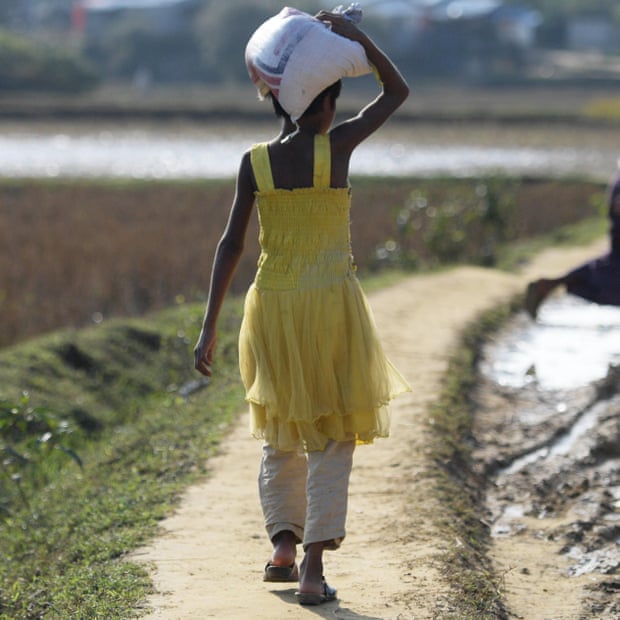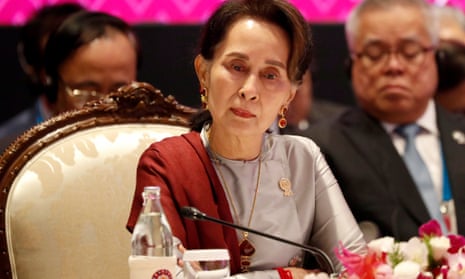Aung San Suu Kyi is among several top Myanmar officials named in a case filed in Argentina for crimes against Rohingya Muslims, the first time the Nobel Laureate has been legally targeted over the crisis.
Rohingya and Latin American human rights groups submitted the lawsuit in Argentina on Wednesday under the principle of “universal jurisdiction,” a legal concept enshrined in many countries’ laws.
The premise is that some acts – including war crimes and crimes against humanity – are so horrific they are not specific to one nation and can be tried anywhere.
“This complaint seeks the criminal sanction of the perpetrators, accomplices and cover-ups of the genocide. We are doing it through Argentina because they have no other possibility of filing the criminal complaint anywhere else,” lawyer Tomas Ojea told AFP.
The lawsuit demands top military and political leaders – including army chief Min Aung Hlaing and civilian leader Suu Kyi – face justice over the “existential threat” faced by the Rohingya Muslim minority.
“For decades, the Myanmar authorities have tried to wipe us out by confining us to ghettos, forcing us to flee our home country and killing us,” said Tun Khin, President of the Burmese Rohingya Organisation UK (BROUK).
Argentinean courts have taken up other universal jurisdiction cases, including in relation to ex-dictator Francisco Franco’s rule in Spain and the Falun Gong movement in China.
Myanmar faces mounting legal pressure in courts around the world for the 2017 expulsion of the Rohingya.
Q&AWho are the Rohingya and what happened to them in Myanmar?
Show

Described as the world’s most persecuted people, 1.1 million Rohingya people live in Myanmar. They live predominately in Rakhine state, where they have co-existed uneasily alongside Buddhists for decades.
Rohingya people say they are descendants of Muslims, perhaps Persian and Arab traders, who came to Myanmar generations ago. Unlike the Buddhist community, they speak a language similar to the Bengali dialect of Chittagong in Bangladesh.
The Rohingya are reviled by many in Myanmar as illegal immigrants and suffer from systematic discrimination. The Myanmar government treats them as stateless people, denying them citizenship. Stringent restrictions have been placed on Rohingya people’s freedom of movement, access to medical assistance, education and other basic services.
Violence broke out in northern Rakhine state in August 2017, when militants attacked government forces. In response, security forces supported by Buddhist militia launched a “clearance operation” that ultimately killed at least 1,000 people and forced more than 600,000 to flee their homes. The UN’s top human rights official said the military’s response was "clearly disproportionate” to insurgent attacks and warned that Myanmar’s treatment of its Rohingya minority appears to be a "textbook example” of ethnic cleansing.
When Aung San Suu Kyi rose to power there were high hopes that the Nobel peace prize winner would help heal Myanmar's entrenched ethnic divides. But she has been accused of standing by while violence is committed against the Rohingya.
In 2019, judges at the international criminal court authorised a full-scale investigation into the allegations of mass persecution and crimes against humanity. On 10 December 2019, the international court of justice in The Hague opened a case alleging genocide brought by the Gambia.
A separate case was filed on Monday against Myanmar by the Gambia at the UN’s top court in The Hague.
Ojea said he hoped international arrest warrants would be issued as a result of the suit. However, the crime of genocide was not specifically included as it is in not in Argentina’s penal code.
